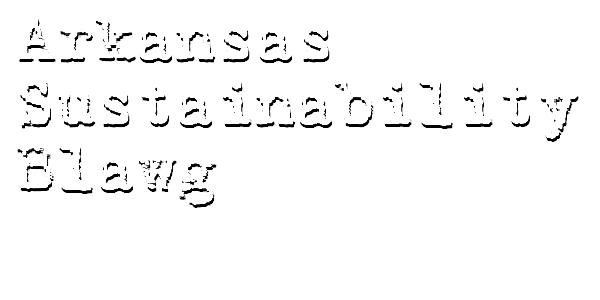What it means, more often than not, is uniting apparently disparate interests in a way that furthers the client's sustainability agenda and achieves the client's goals (of which, presumably, one is furthering the sustainability agenda). Consider the simple act of uniting sustainable business practices – such as efficiency in the use of paper and energy, with the notoriously inefficient practice of law. For a client that wants to use, or must use, (or both) vendors, contractors, and professoonals who meet certain sustainability standards or criteria, this simple act takes on considerable importance.
Against this backdrop, I highlight two strands of thought from the AAEA conference. The first is from the keynote speaker, former Colorado governor Bill Ritter. Governor Ritter observed that it was unlikely that comprehensive advanced energy legislation would be forthcoming from the federal government anytime soon. Instead, advancements in the law of sustainability would be found locally, and, ultimately, public policy would provide the leverage to move forward. These are not state secrets revealed. But to a lawyer who practices sustainability law, Governor Ritter’s plain spoken observation is a gut check. One of my mentors in the law used to reflect that, “for a lawyer, public policy is the refuge of a weak mind.” And it’s mighty difficult to provide advice and counsel about laws that do not exist and public policies that aren’t law.
The second thread comes from Matt Dromi, a co-founder of the Fayetteville, Arkansas-based company modthink. Presenting on “Harnessing the Power of Social Media for Advanced Energy Business Growth,” Dromi emphasized that successful social media campaigns were authentic and embraced humanity. This means less, “come to my event” or “here’s a coupon for some pants,” and more, “this is my real story” and “this is how we are alike.” In two words: similarities connect.
These two disparate ideas tie together in the practice of sustainability law. More often than not, lawyers are focused on differences, and clients, particularly before attorneys fees exceed budget, dig their heels into ground wrought from principle. For example, in reviewing a contract, the lawyer's first line of inquiry is usually something like, “What’s wrong with this deal?” or, “How is this different from what I expected?” as opposed to “What is good about this deal?” or “What provisions do I definitely want to keep?” The client's companion position might be something like, "I never waive the security deposit" or "I always litigate on my turf," instead identifying with areas of common interest, such as a mutual commitment to maintain the LEED certification of a building, and to share costs to do so.
This is the sustainability law that I practice – a practice driven by client goals and guided by embracing similarities. The fact that we are dealing with sustainability subject matter means that, by definition, there are similarities and that those similarities relate directly to client goals. Identify the common ground and point out to your adversary (and, perhaps with some finess, your client) that the two of you are already standing on it and identify exactly what that means: that from the start, some principles are aligned and some goals achieved.
The law of sustainability is different from other areas of law because, properly practiced, it is driven by similarities between and among parties as opposed to differences. Yes, parties negotiating a green lease may be adversarial, but they are also united by the common principals inherent in a green lease, such as the desire to preserve and promote a green building. Yes, an employer/employee relationship is often marked by an imbalance of power, but as the employer adopts sustainable business practices the two are united by a common interest in the employee’s welfare. The similarities align with goals, and if the parties start with a focus on the similarities, they are more likely to achieve the goals. A settlement of a contested piece of litigation is often described as a deal that no one likes. The resolution of a sustainability claim can be just the opposite – a deal that serves the goals and common interests of all involved.

No comments:
Post a Comment
I welcome your comments. By commenting on this blog, you accept the blog's terms of use. You must use your first and last name when posting, and you must stay on topic.